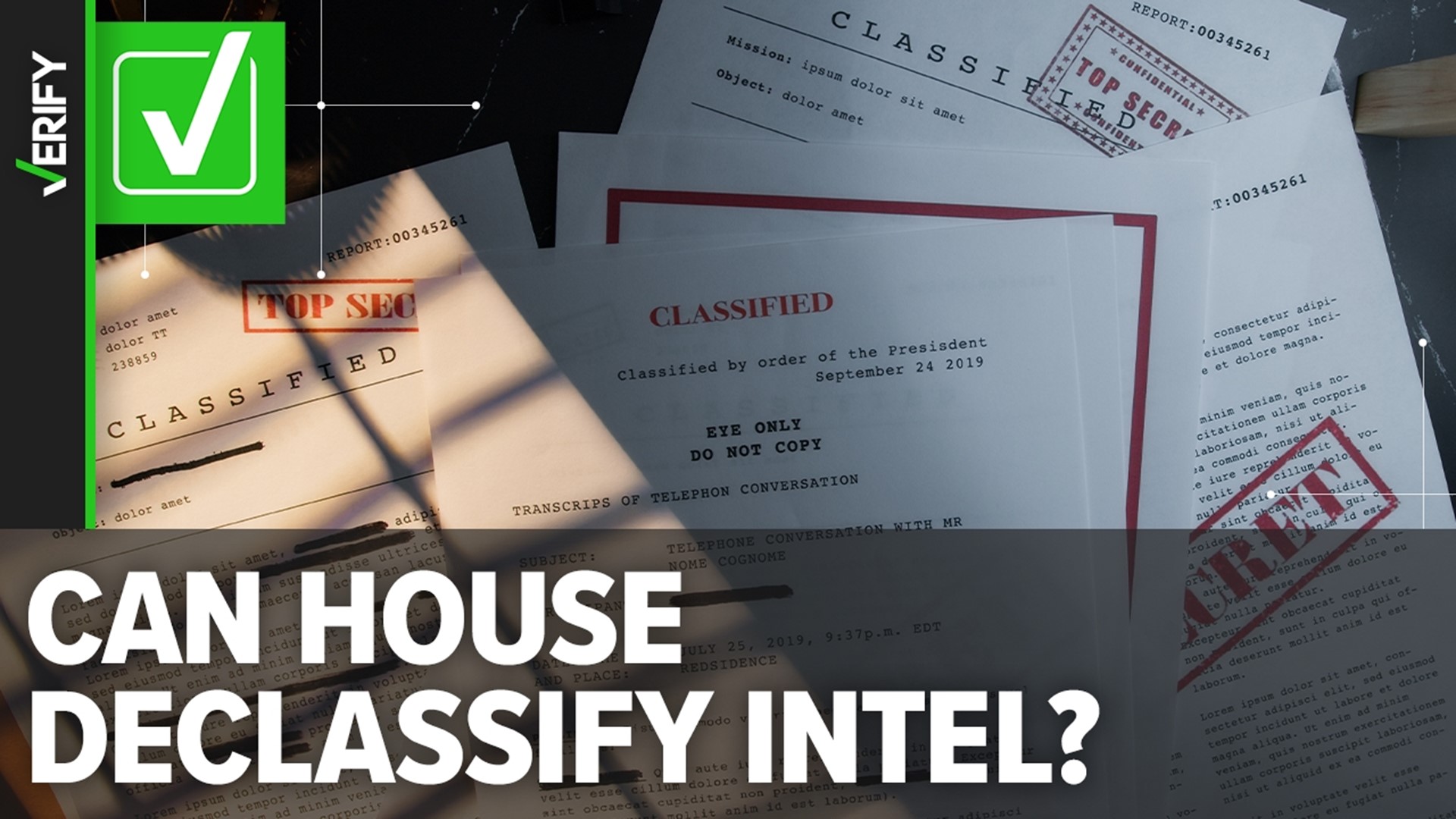The chairman of the House Intelligence Committee, Rep. Mike Turner (R-Ohio), made waves on Feb. 14 with a cryptic warning: he called for President Biden to declassify information on a “serious national security threat” that the committee had been briefed on.
Bipartisan leaders in the House quickly responded by urging calm, saying the situation is being appropriately handled and is not an imminent threat.
The threat is reportedly related to a Russian program to use nuclear weapons in space against satellites.
Turner’s announcement also prompted debate over whether presidential action would be required to declassify the information the committee received about the threat, with one reply to an X post claiming, “The House has the power to declassify any information in its possession. You don't need to ask Biden or the Senate. Just do it.”
THE QUESTION
Can the House of Representatives declassify information in its possession?
THE SOURCES
THE ANSWER
Yes, the House of Representatives can declassify information in its possession.
WHAT WE FOUND
The official Rules of the House of Representatives outline a procedure for declassifying information if enough members deem it to be in the public’s best interest.
Rule X, clause 11(g) states, “The [intelligence] committee may disclose publicly any information in its possession after a determination by the select committee that the public interest would be served.”
To do so requires a majority vote of the House Intelligence Committee.
But there is an exception. If the committee holds such a vote, the president has five days to write a letter arguing against releasing the information. If he does, the matter goes to the full House, which can release the info with a majority vote.
This procedure is not a form of legislation, so it does not require approval by the Senate or a presidential signature. It does not allow the House to declassify information it has not already been provided, although the House Intelligence Committee has broad access to classified information.
Senate rules outline a virtually identical process, allowing first a vote of the Senate Intelligence Committee, and then requiring a vote of the whole Senate if the president objects within five days.
VERIFY found no indication this process has even been used. A 2007 report by the Information Security Oversight Office, a division of the National Archives and Records Administration, said, “While this provision to declassify information is asserted by Congress, it does not appear to have been invoked.”
Congress also has the ability to pass legislation demanding certain information be declassified, though this requires majorities in both chambers, and potentially two-thirds supermajorities if the president vetoes. In 2021, Congress voted unanimously to order the declassification of information related to the origins of COVID-19, and the bill was signed into law by President Biden.

